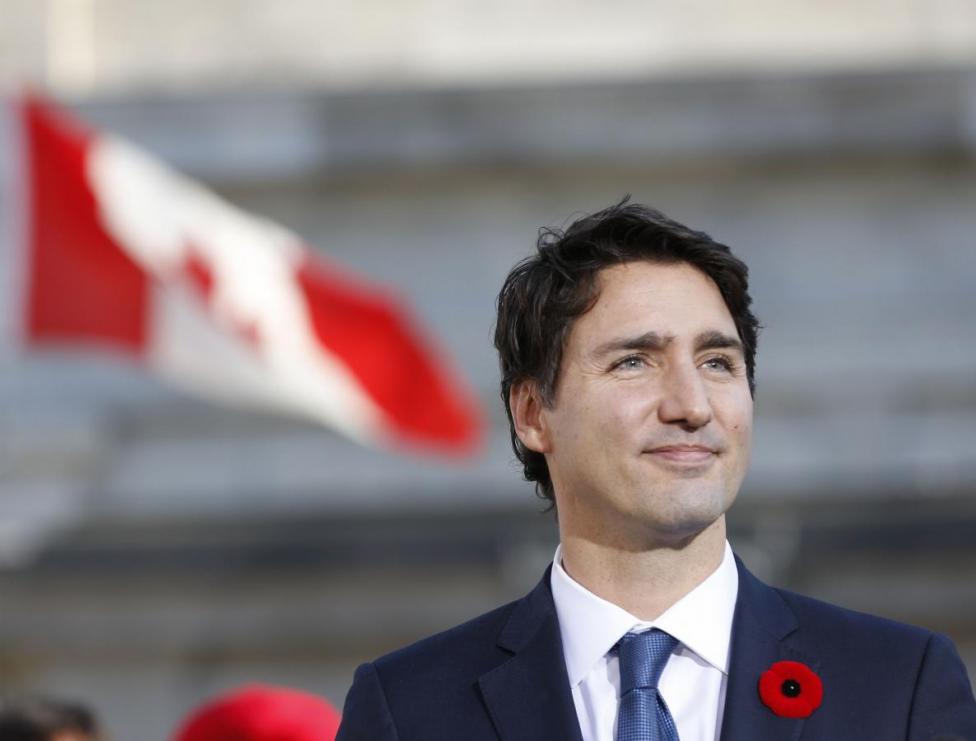Toronto-Canada’s prime minister, Justin Trudeau, is due in China on Tuesday for a much anticipated visit, hoping to reset what had been an up-and-down relationship under the previous government. Closer ties, Trudeau says, would release untapped prosperity at home and promote Canadian values like good governance and the rule of law in China.
But many Chinese-Canadians say the opposite is happening. They say the growing economic clout wielded in Canada by China, Canada’s largest trading partner after the United States, is leading to an erosion of their own freedom — specifically their freedom to speak openly about China’s authoritarian state. Journalists who write for the many Chinese-language publications in Canada, along with activists and others, say they are under increasing pressure to promote the interests of the Chinese government.
“It’s gotten worse and worse,” said Jonathan Fon, 67, a Toronto paralegal, freelance writer and critic of China’s Communist rulers. Fon, who emigrated from China in 1992, said publications that had once printed his opinion articles now routinely rejected them because of worries about political and financial fallout. “They will not take my contributions, even though we’re friends,” he said.
In the past decade, China has embarked on an ambitious effort to promote its image abroad, including a multibillion-dollar overseas expansion by Chinese state media and a network of Confucius Institutes, which teach Chinese language and culture while disseminating the Communist Party’s viewpoints.
In Western countries, analysts say, the party exerts influence over Chinese immigrants and students through embassies, consulates and community organizations, as well as business interests with the financial leverage to shape local Chinese-language media coverage.
“China is not shy about using overseas Chinese communities to advance its interests abroad,” said Minxin Pei, an expert on Chinese politics at Claremont McKenna College in California. “What’s brilliant about the Chinese government’s interest strategy is that it exploits the freedoms of Western democracies against Western democracies.”
Even some Canadian officials who are eager for closer ties have weighed in, expressing support for Beijing on human rights and trying to discourage negative coverage of China. That has provoked anger in Canada, where many see China as a threat to their way of life, and underscored the challenge faced by Trudeau, who took office in November, as he seeks more engagement after a decade of sometimes chilly ties under his predecessor.
Trudeau’s weeklong visit will culminate in a Group of 20 economic summit meeting in the Chinese city of Hangzhou. But his trip is also intended to help Canadian businesses gain greater market access to China’s growing middle class, encourage Chinese capital investment in Canada, and attract big-spending Chinese tourists and university students to Canada.
The Canadian foreign minister, Stéphane Dion, said in an interview that the government’s pursuit of closer engagement with nondemocratic countries, including China, would allow it to promote human rights while protecting Canadian interests.
“We’ll try to make sure that Canada will be part of the solution, to make these countries more free than they are today,” he said.
Asked about complaints that Beijing was putting pressure on Chinese-Canadians, Dion said he and Trudeau were “very strongly against any attempt to muzzle public opinion in Canada.” He noted that many Chinese-Canadians were clearly not afraid to criticize Beijing.
But recent events have kept the issue in the spotlight.
In June, during a news conference in Ottawa, China’s visiting foreign minister, Wang Yi, berated a Canadian reporter for asking Dion a question about human rights in China. “You have no right to speak of this,” Wang said.
A week later, Michael Chan, a Chinese-Canadian who was Ontario’s provincial minister of citizenship, immigration and international trade, defended China’s human rights practices in a column on a Canadian Chinese-language website, 51.ca. Making no mention of China’s use of torture, illegal detention or other systemic abuses, Chan argued that China’s rights record should be viewed positively, in the context of economic development.
“People are living with freedom,” he wrote, praising Beijing for improving Chinese people’s “basic livelihood,” allowing them to travel and study abroad.
Outrage soon followed both officials’ remarks — as did consequences for some writers who criticized them.
A Chinese writer said he had lost his column in the Global Chinese Press, based in British Columbia, after the newspaper was pressured over his criticism of Wang and Chan, according to a report in The Globe and Mail.
The New York Times
